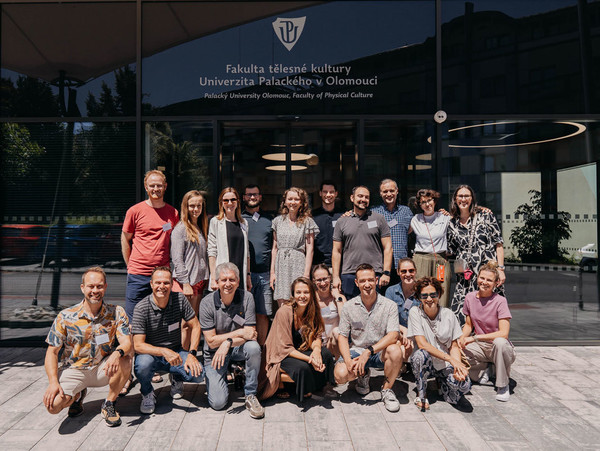At the turn of June and July, the Faculty of Physical Culture at Palacký University hosted the second edition of the international program focused on the use of artificial intelligence in education and research, titled Artificial Intelligence in Education and Research (Second Edition). The program offered a combination of online meetings and in-person workshops, which took place at the faculty from 30 June to 4 July 2025. Organized in cooperation with the Working Group on Emergent Topics in Physiotherapy of the ENPHE (European Network of Physiotherapy in Higher Education), the event was intended for university lecturers and researchers in the field of physiotherapy.
The aim of the program was to present the possibilities and limitations of AI in the academic environment – from teaching and personal work organization to research activities and ethical issues. Topics such as generative AI, creation of visual content, support for teaching, and integration of AI into curricula were covered by both Czech and international lecturers. They contributed both in person and online, allowing for a broader range of perspectives.
"Last year, my colleague Martin Dvořáček and I had the opportunity to take part in this excellent program as regular participants. Since then, a lot has happened – one thing led to another, and this year we were given the chance to host the event. We are very pleased with the positive feedback and look forward to the next edition of the program, this time for physiotherapy students," said Ondřej Laštovička from the Department of Physiotherapy, who was the main organizer of the event along with Martin Dvořáček.
This time, ten international participants from nine European universities and seven countries – Italy, Croatia, Luxembourg, Estonia, the Netherlands, Spain, and Switzerland – came to Olomouc. Alongside their Czech colleagues, they engaged not only in lectures and workshops but also in the accompanying program. They visited the Department of Physiotherapy, the RRR Centre, and the Centre for Kinanthropological Research, climbed the tower of St. Wenceslas Cathedral, and concluded the week with a shared dinner at the traditional restaurant U Drápala.
The event was not only intensive but, above all, inspiring. The combination of the professional program, exchange of experience, practical demonstrations, and friendly atmosphere created space for new ideas and the establishment of international cooperation. Enthusiastic feedback from participants and the smooth course of the program are clear evidence that the event was a great success.























